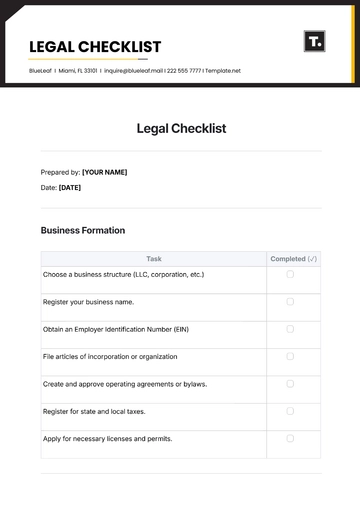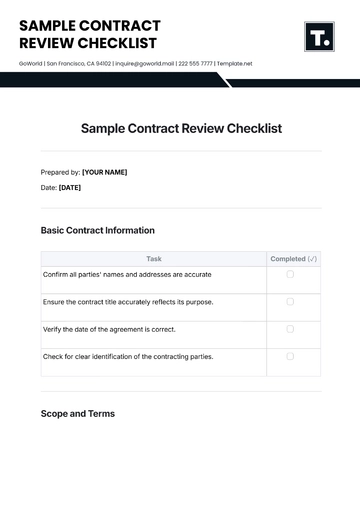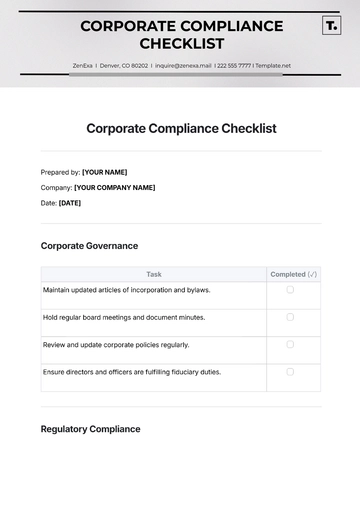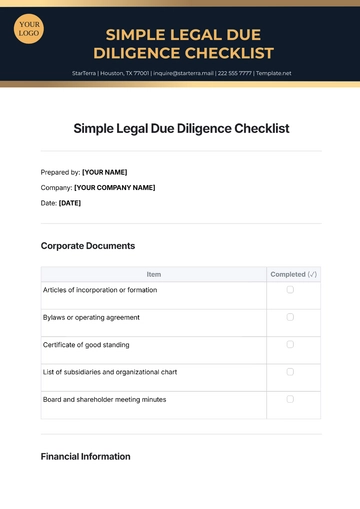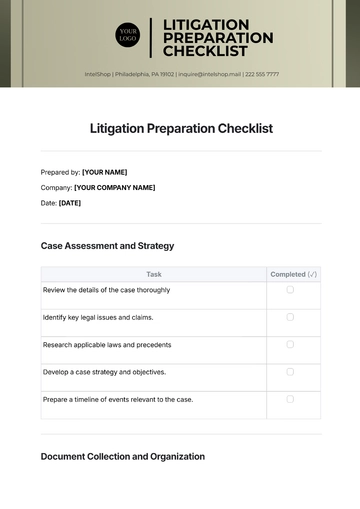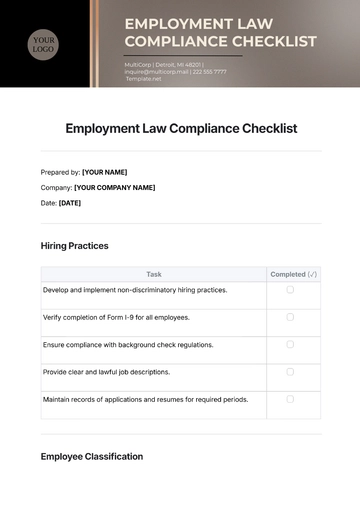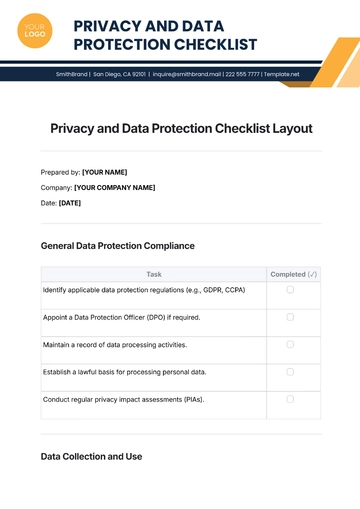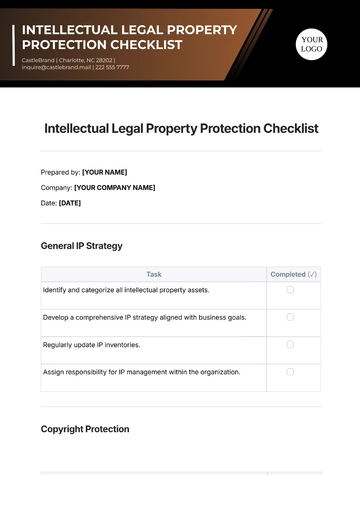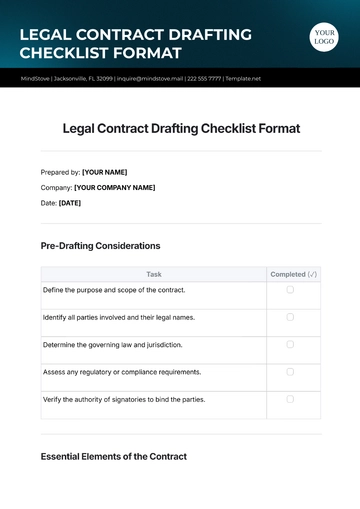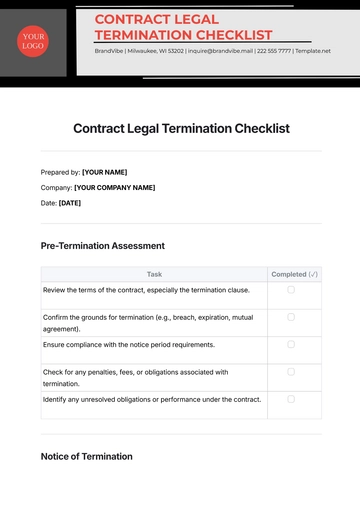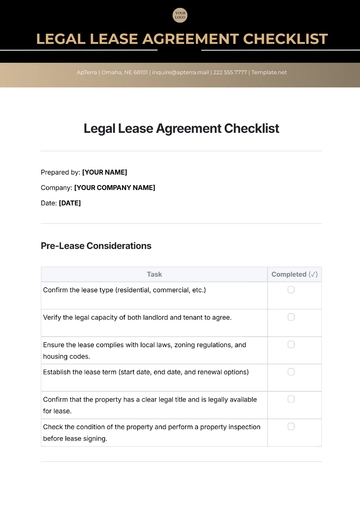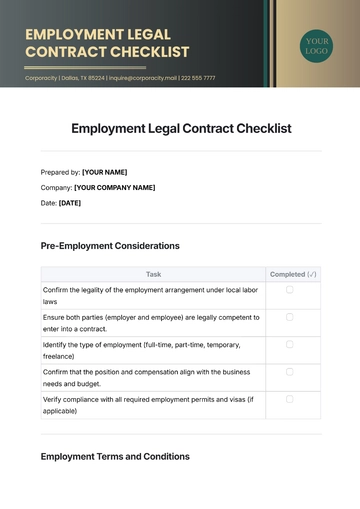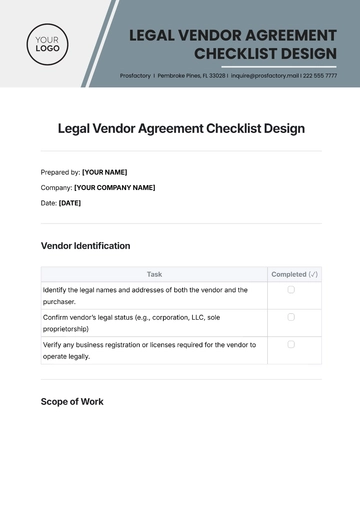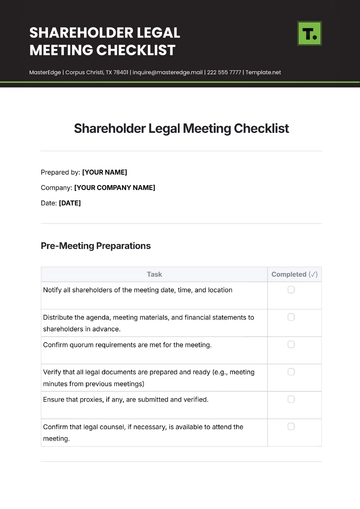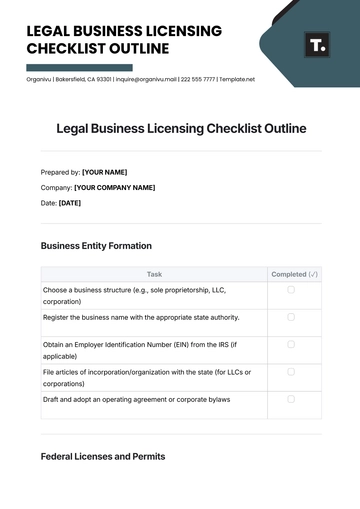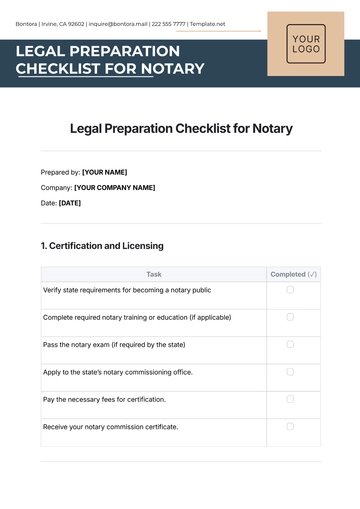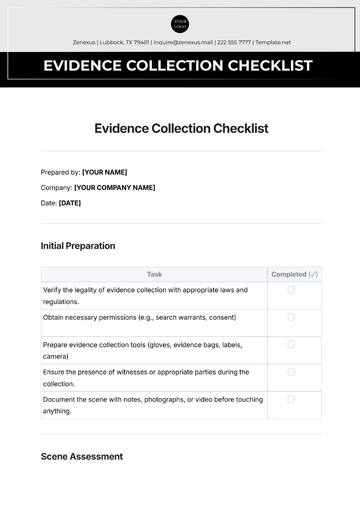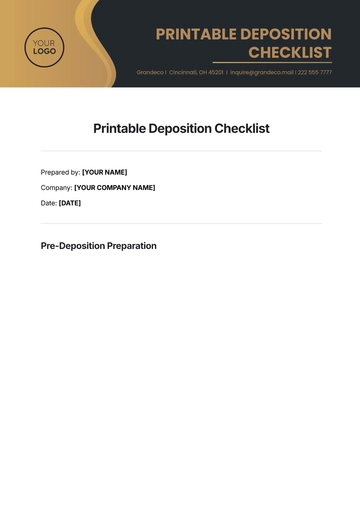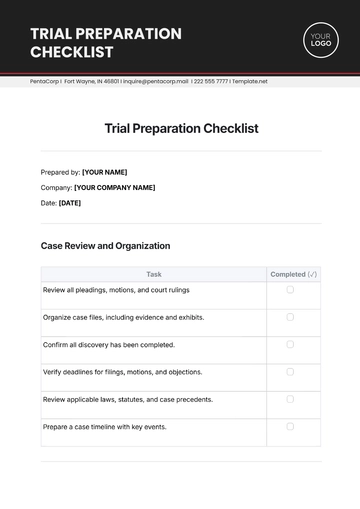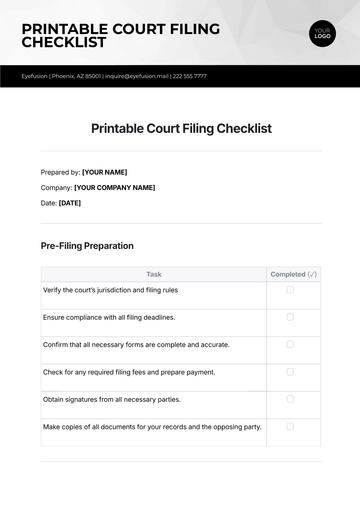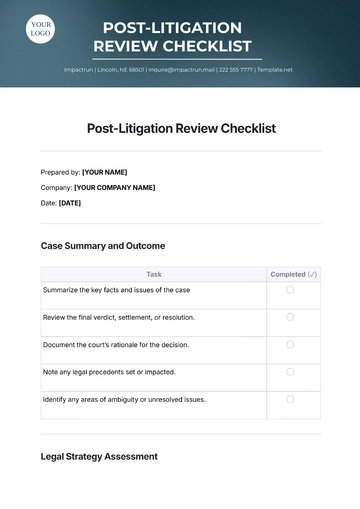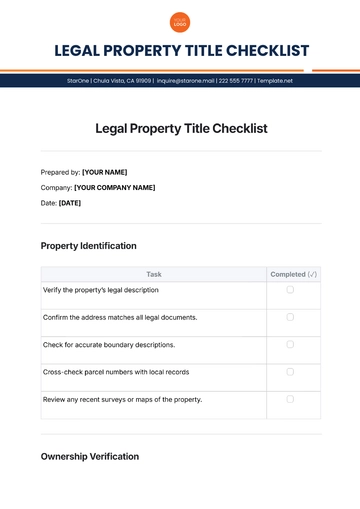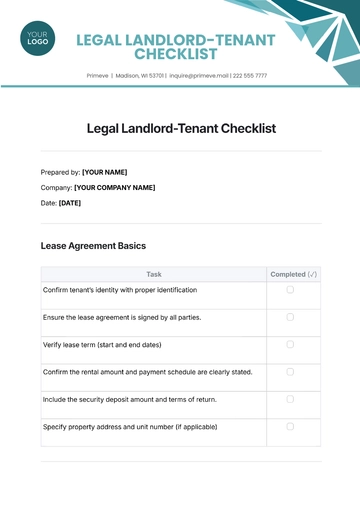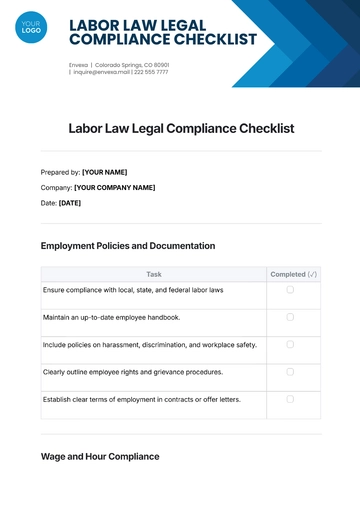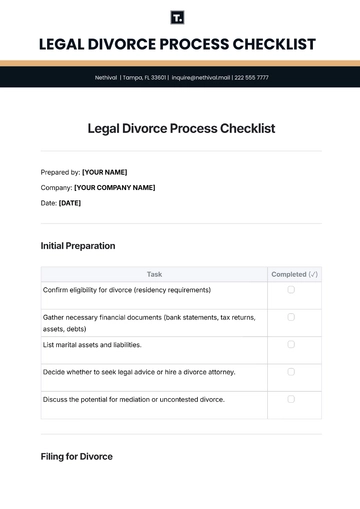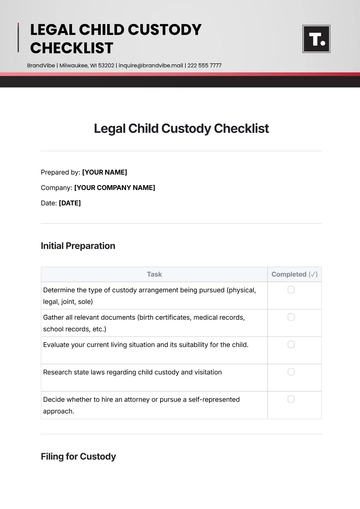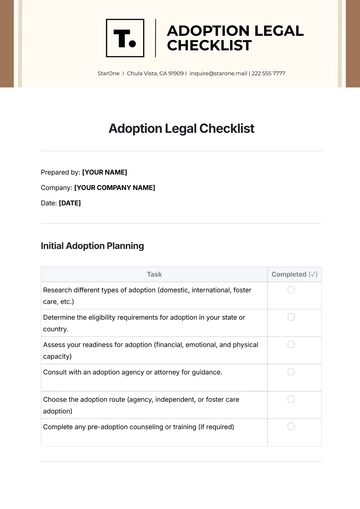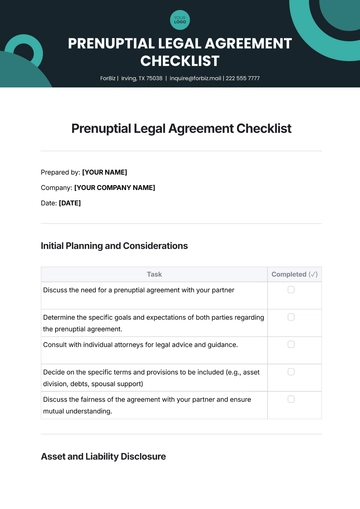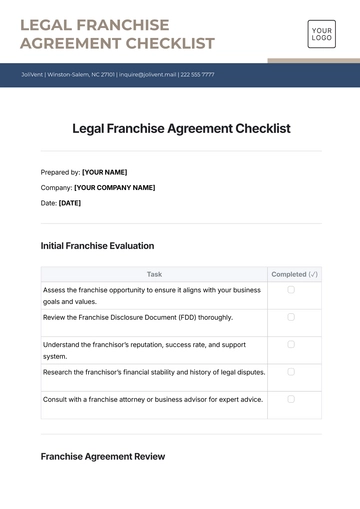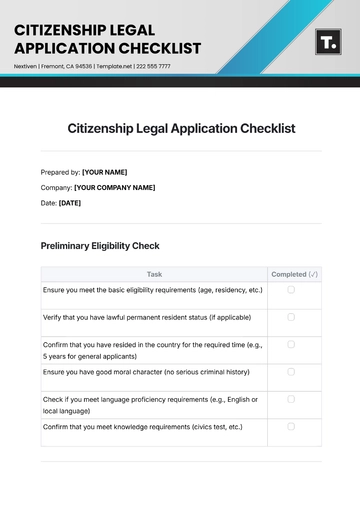Free Nursing Home HIPAA Compliance Checklist
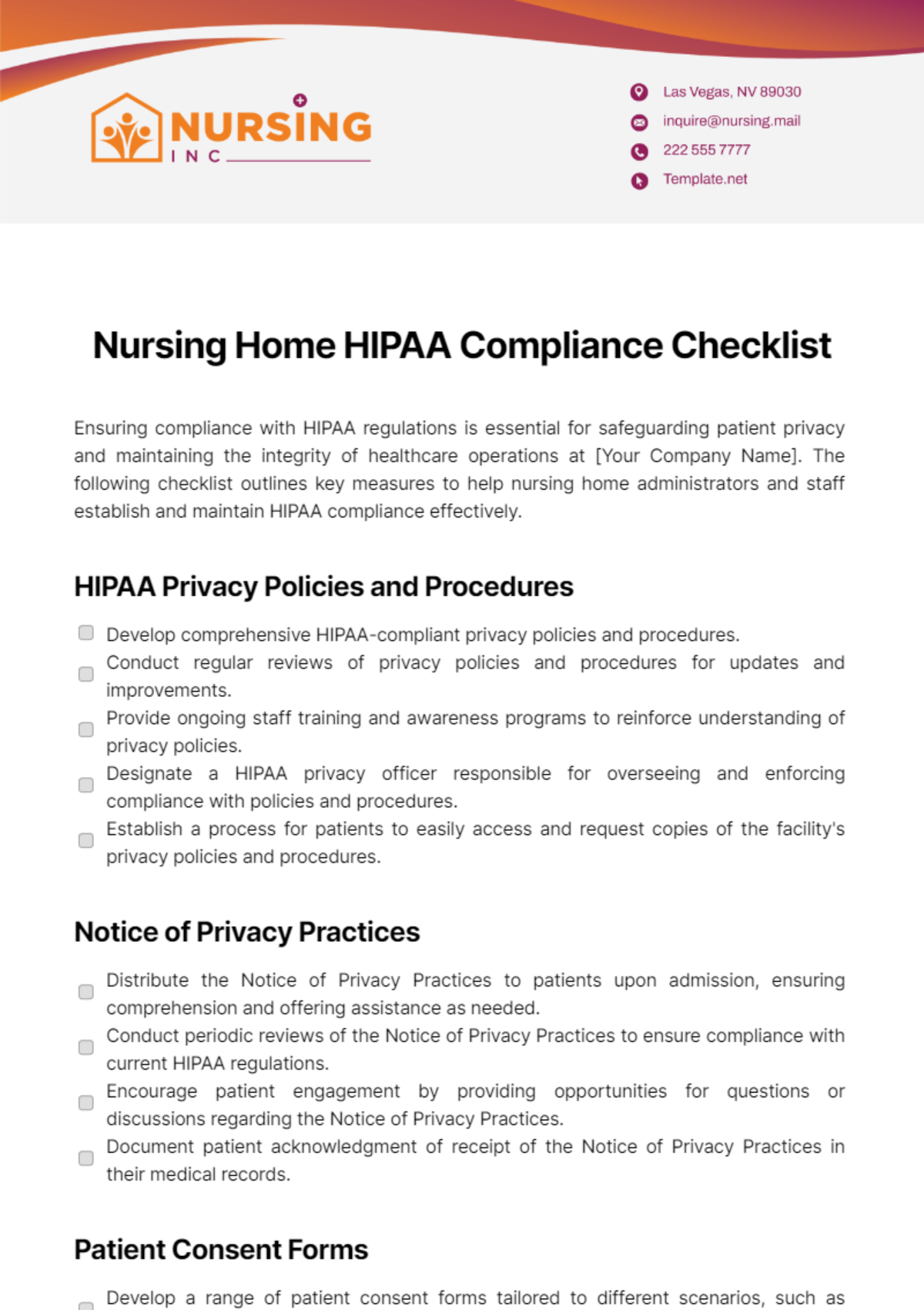
Ensuring compliance with HIPAA regulations is essential for safeguarding patient privacy and maintaining the integrity of healthcare operations at [Your Company Name]. The following checklist outlines key measures to help nursing home administrators and staff establish and maintain HIPAA compliance effectively.
HIPAA Privacy Policies and Procedures
Develop comprehensive HIPAA-compliant privacy policies and procedures.
Conduct regular reviews of privacy policies and procedures for updates and improvements.
Provide ongoing staff training and awareness programs to reinforce understanding of privacy policies.
Designate a HIPAA privacy officer responsible for overseeing and enforcing compliance with policies and procedures.
Establish a process for patients to easily access and request copies of the facility's privacy policies and procedures.
Notice of Privacy Practices
Distribute the Notice of Privacy Practices to patients upon admission, ensuring comprehension and offering assistance as needed.
Conduct periodic reviews of the Notice of Privacy Practices to ensure compliance with current HIPAA regulations.
Encourage patient engagement by providing opportunities for questions or discussions regarding the Notice of Privacy Practices.
Document patient acknowledgment of receipt of the Notice of Privacy Practices in their medical records.
Patient Consent Forms
Develop a range of patient consent forms tailored to different scenarios, such as treatment, research, and marketing communications.
Regularly update consent forms to reflect changes in healthcare practices and regulations.
Train staff on the proper use and documentation of patient consent forms to ensure compliance.
Staff Training
Provide initial comprehensive HIPAA training for all new staff members during orientation.
Offer specialized training sessions for staff members in roles with higher exposure to PHI, such as nurses and administrators.
Incorporate real-life scenarios and case studies into training sessions to enhance staff understanding of HIPAA principles.
Encourage ongoing education and certification opportunities for staff members responsible for HIPAA compliance.
Access Controls
Implement multi-factor authentication for accessing electronic systems containing PHI to enhance security.
Conduct regular audits of user access logs to identify and address unauthorized access or suspicious activity.
Establish protocols for promptly disabling access to PHI for staff members who leave their positions or change roles.
Provide staff with clear guidelines on permissible uses and disclosures of PHI to prevent unauthorized access.
Physical Safeguards
Install surveillance cameras and access control systems in areas where PHI is stored or accessed to monitor for unauthorized entry.
Implement a visitor log and escort policy to track individuals entering areas containing PHI.
Conduct regular security sweeps to identify and address potential physical vulnerabilities, such as unlocked file cabinets or unattended computers.
Technical Safeguards
Encrypt all PHI stored on portable electronic devices, such as laptops and mobile phones, to protect against data breaches.
Implement intrusion detection systems to monitor network traffic and identify potential security threats.
Conduct regular vulnerability scans and penetration tests to identify and address weaknesses in IT systems.
Enforce automatic screen locking mechanisms on computers and mobile devices to prevent unauthorized access.
Provide ongoing cybersecurity awareness training for staff to recognize and respond to phishing attempts and other cyber threats.
Breach Response Plan
Develop a detailed breach response plan outlining roles, responsibilities, and procedures for responding to security incidents.
Conduct regular tabletop exercises and drills to test the effectiveness of the breach response plan.
Establish communication protocols for notifying patients, regulatory authorities, and other stakeholders in the event of a breach.
Business Associate Agreements
Maintain an up-to-date inventory of all business associates with access to PHI.
Conduct due diligence assessments of prospective business associates to evaluate their HIPAA compliance posture.
Negotiate and execute comprehensive business associate agreements that clearly define each party's responsibilities for protecting PHI.
Documentation and Auditing
Maintain detailed documentation of HIPAA policies, procedures, and compliance activities, including records of training sessions and audits.
Conduct regular internal audits of HIPAA compliance to identify and address gaps or deficiencies.
Establish a document retention policy outlining the storage and disposal requirements for records containing PHI.
Provide staff with access to resources and tools for documenting and reporting HIPAA compliance activities effectively.
Ongoing Compliance Monitoring
Assign dedicated compliance officers or committees responsible for monitoring and enforcing HIPAA compliance.
Conduct periodic risk assessments to identify potential vulnerabilities in the organization's HIPAA compliance program.
Implement proactive measures to address identified risks and prevent security incidents or breaches.
HIPAA Enforcement
Establish clear disciplinary procedures for addressing HIPAA violations, including warnings, retraining, and termination as appropriate.
Respond promptly to complaints or investigations related to HIPAA compliance, cooperating fully with regulatory authorities as needed.
Document all incidents of non-compliance and corrective actions taken to address them.
- 100% Customizable, free editor
- Access 1 Million+ Templates, photo’s & graphics
- Download or share as a template
- Click and replace photos, graphics, text, backgrounds
- Resize, crop, AI write & more
- Access advanced editor
Ensure HIPAA compliance in nursing homes with Template.net's Nursing Home HIPAA Compliance Checklist Template. Editable in our AI Editor Tool, this customizable template provides a structured format for assessing compliance with the Health Insurance Portability and Accountability Act (HIPAA) regulations, including patient privacy, security measures, data protection, and staff training requirements.
You may also like
- Cleaning Checklist
- Daily Checklist
- Travel Checklist
- Self Care Checklist
- Risk Assessment Checklist
- Onboarding Checklist
- Quality Checklist
- Compliance Checklist
- Audit Checklist
- Registry Checklist
- HR Checklist
- Restaurant Checklist
- Checklist Layout
- Creative Checklist
- Sales Checklist
- Construction Checklist
- Task Checklist
- Professional Checklist
- Hotel Checklist
- Employee Checklist
- Moving Checklist
- Marketing Checklist
- Accounting Checklist
- Camping Checklist
- Packing Checklist
- Real Estate Checklist
- Cleaning Checklist Service
- New Employee Checklist
- Food Checklist
- Home Inspection Checklist
- Advertising Checklist
- Event Checklist
- SEO Checklist
- Assessment Checklist
- Inspection Checklist
- Baby Registry Checklist
- Induction Checklist
- Employee Training Checklist
- Medical Checklist
- Safety Checklist
- Site Checklist
- Job Checklist
- Service Checklist
- Nanny Checklist
- Building Checklist
- Work Checklist
- Office Checklist
- Training Checklist
- Website Checklist
- IT and Software Checklist
- Performance Checklist
- Project Checklist
- Startup Checklist
- Education Checklist
- Home Checklist
- School Checklist
- Maintenance Checklist
- Planning Checklist
- Manager Checklist
- Wedding Checklist
- Vehicle Checklist
- Travel Agency Checklist
- Vehicle Inspection Checklist
- Interior Design Checklist
- Backpacking Checklist
- Business Checklist
- Legal Checklist
- Nursing Home Checklist
- Weekly Checklist
- Recruitment Checklist
- Salon Checklist
- Baby Checklist
- Equipment Checklist
- Trade Show Checklist
- Party Checklist
- Hospital Bag Checklist
- Evaluation Checklist
- Agency Checklist
- First Apartment Checklist
- Hiring Checklist
- Opening Checklist
- Small Business Checklist
- Rental Checklist
- College Dorm Checklist
- New Puppy Checklist
- University Checklist
- Building Maintenance Checklist
- Work From Home Checklist
- Student Checklist
- Application Checklist
